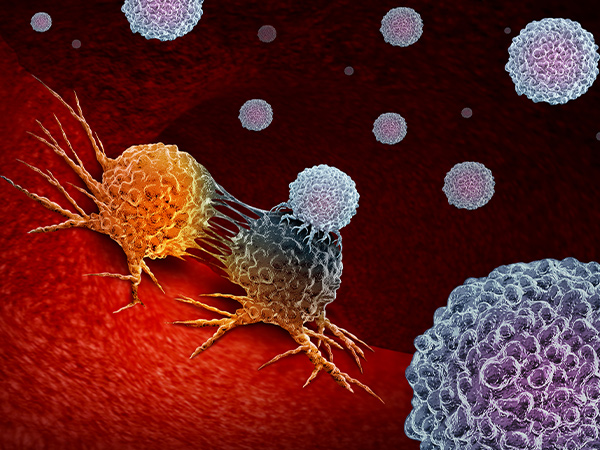Revising the Dosing of a Cancer Immunotherapeutic
The FDA has approved an alternative dosing schedule for the immune checkpoint inhibitor pembrolizumab.

On April 28, 2020, the U.S. Food and Drug Administration (FDA) approved a new dosing schedule for the cancer immunotherapeutic pembrolizumab (Keytruda), which is currently approved to treat 13 forms of cancer, as well as cancers that test positive for either of two biomarkers.
The FDA’s announcement came just hours after, and was based on, clinical outcomes data presented by Mallika Lala, PhD, at the AACR Virtual Meeting I. The new dosing regimen approved for pembrolizumab is for 400 mg administered every six weeks, which provides an alternative to the previous regimen of 200 mg every three weeks.
Dr. Lala, associate principal scientist in the Quantitative Pharmacology and Pharmacometrics group at Merck & Co., which developed and sells pembrolizumab, said having two dosing regimens gives patients and oncologists flexibility, a benefit that “is particularly exemplified by the current COVID-19 pandemic.”
The FDA stated: “The approval was based on pharmacokinetic modeling and exposure-response analyses” of a cohort of patients in the KEYNOTE-555 clinical trial.
Pembrolizumab is in a class of immunotherapeutics known as immune checkpoint inhibitors that work by releasing the “brakes” on the body’s immune system, freeing the immune system to attack and destroy the cancer cells. The drug is currently approved to treat certain patients with melanoma, head and neck cancer, Hodgkin lymphoma, non-Hodgkin lymphoma, liver cancer, kidney cancer, cervical cancer, Merkel cell carcinoma, bladder cancer, endometrial cancer, gastric cancer, lung cancer, and esophageal cancer, as well as solid tumors that are microsatellite instability-high or mismatched repair-deficient.
More details on this announcement and the data presented at the AACR Virtual Annual Meeting I are available on the AACR’s official blog, Cancer Research Catalyst.
The FDA approval was rendered on April 28, 2020.
